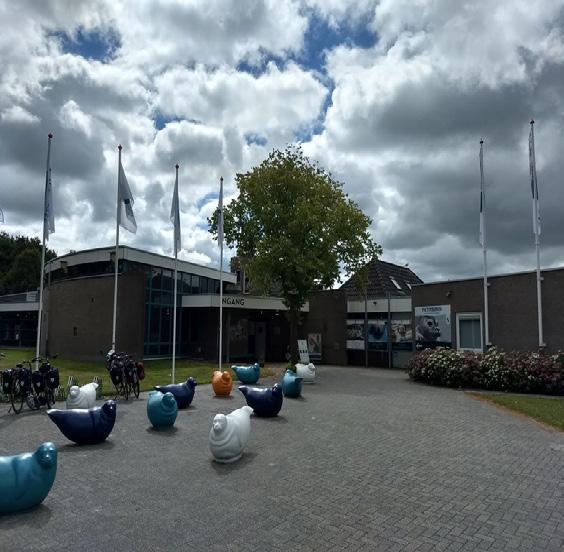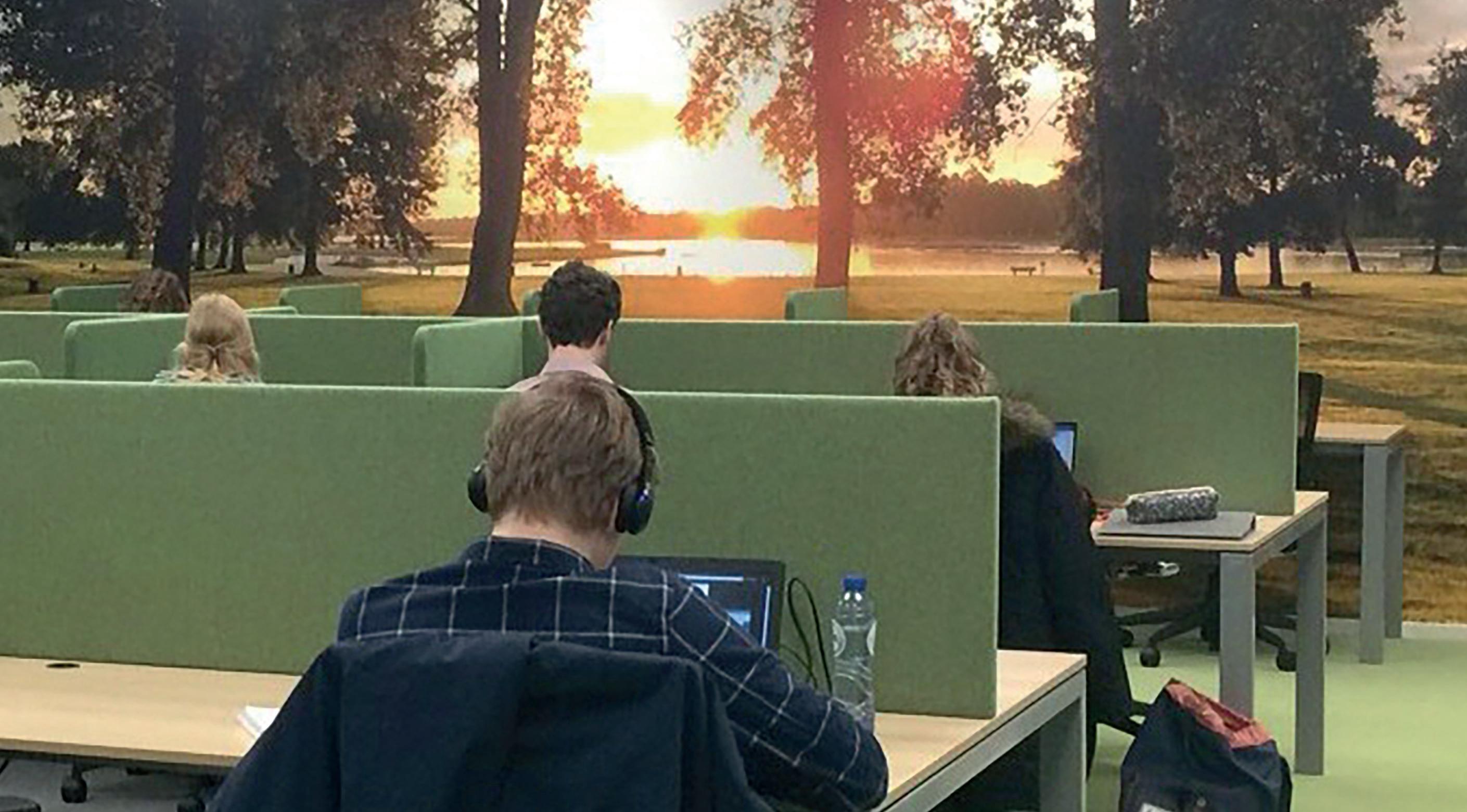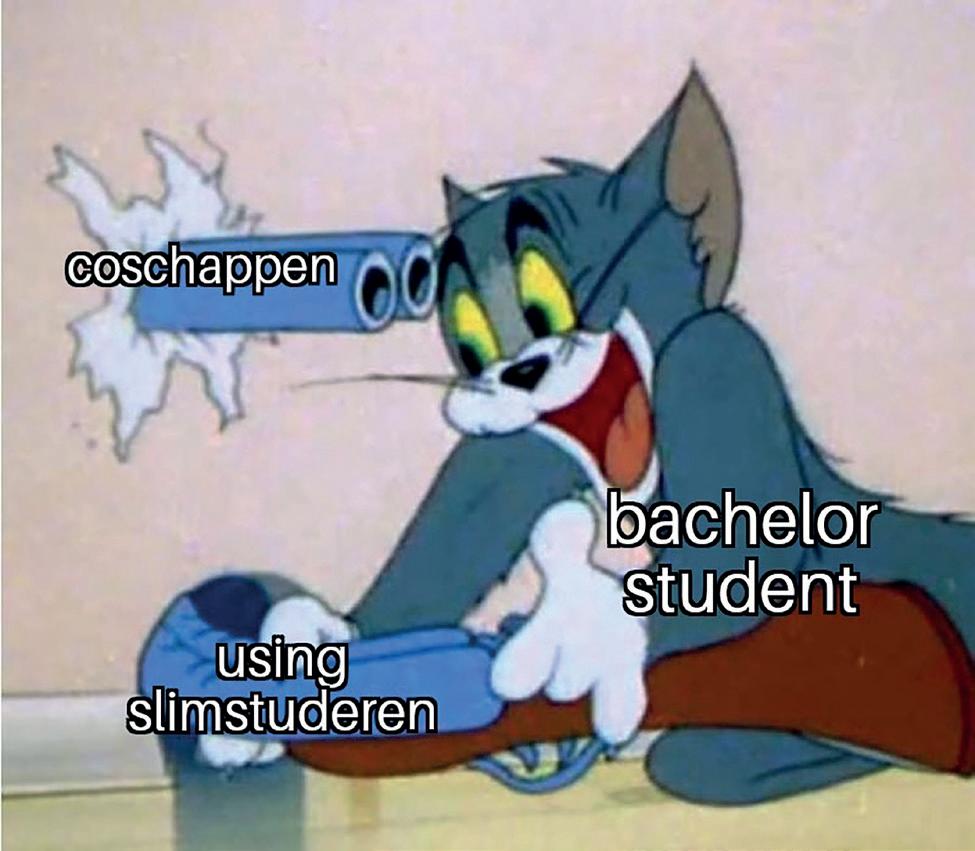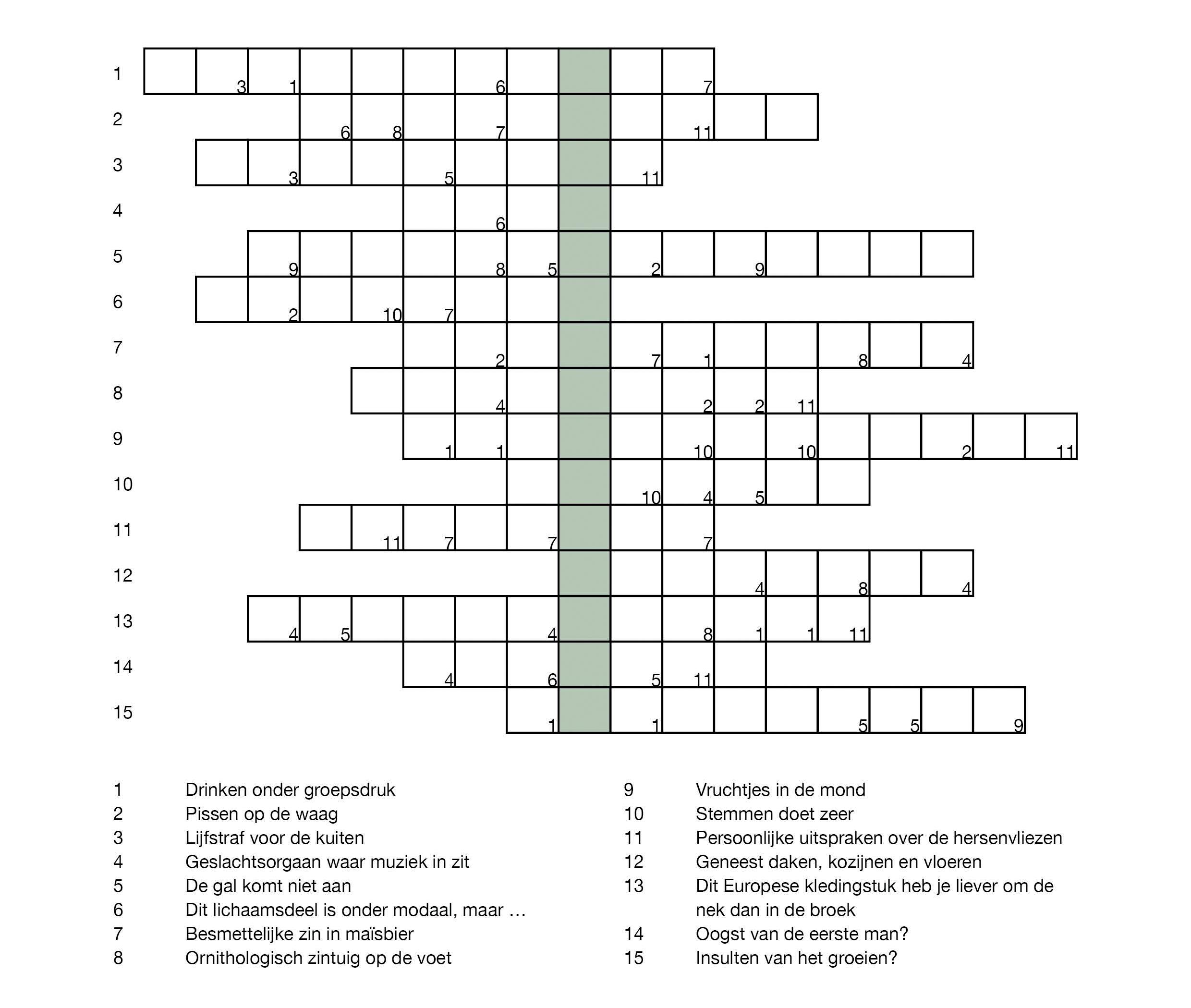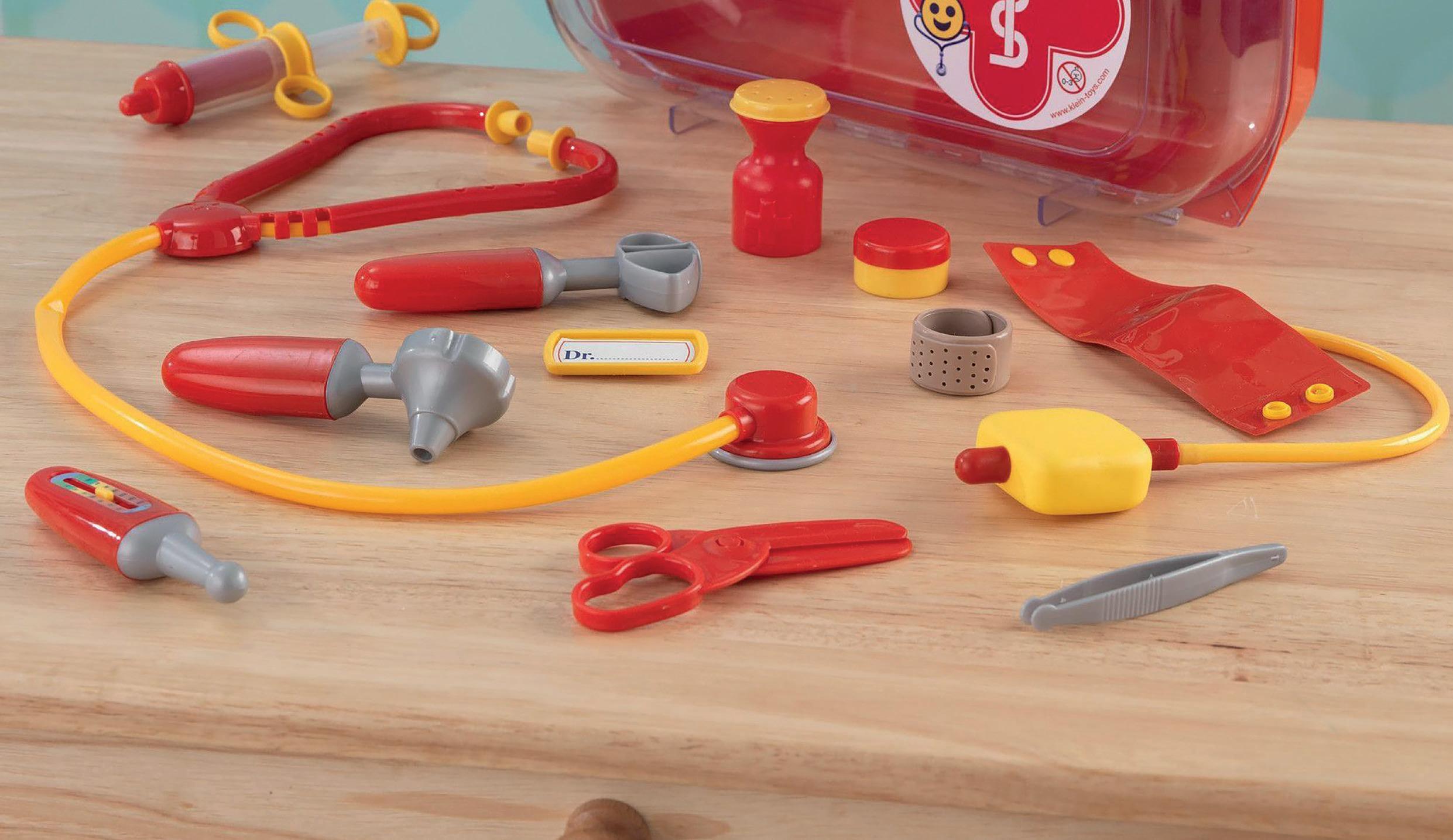
5 minute read
Learning Dutch
from PanEssay Maart 2020
by PanEssay
Learning Dutch for internationals
A guide for obtaining Master’s level Dutch fluency
Advertisement
Very few medical programmes in the world require students to change the language of their programme halfway through. This presents a unique challenge to international students, with only three years to learn a completely new language alongside the basic curriculum. Unfortunately, support for these students by the university is lacking, as Dutch classes often fill up in minutes and have expenses outside a student’s budget. Therefore, many students are looking for options to learn Dutch outside the traditional classroom setting. This guide will point out helpful resources for students looking to learn Dutch independently, as well as tips for becoming as fluent as possible for the Master’s programme!
Firstly, many people forget the value of a local library when it comes to learning a new language or skill. The newly built Forum Bibliotheek gives Dutch lessons at all levels to members of the community. These are generally cheaper and more accessible than those offered by the RUG’s language center, so I suggest that you stop by and ask! They also have a lot of Dutch textbooks on loan, including some that work well without a teacher. The best methods for self study include the Delftse Methode, and a grammar book called ‘Klare Taal!’. Both give clear explanations, so are perfect for those who need a structured way to learn Dutch independently. Other resources are also available, such as NT2 practice papers, so plan a trip to the Forum and check out what works for you!
There are also ways to learn Dutch without leaving the comfort of your home. There are plenty of websites that offer language lessons, but they vary in the quality of the content and financial accessibility. The best websites I have found that are both efficient and fun to use are Memrise, Duolingo, and Clozemaster. And luckily, all are free of charge! Memrise is a vocabulary based website that uses repetition to ensure that the words stick. They have many premade themes at various levels, so anyone from A0 to C1 level can learn new words! Duolingo is one of the most well known language learning websites out there, with over 100 million people signed up. It takes a structured approach from beginner to B1, offering lessons of grammar and vocabulary combined. Lastly, Clozemaster is a fun, arcade-like game that asks you to fill in words missing from sentences, so it works on reading comprehension. They award points for every right answer and keep leaderboards, so it is motivating for those with a competitive side.
The best way to learn a language is to actually use it in daily life. Luckily, we live in a country that speaks Dutch outside of our international bubble! Groningen offers many social events that give an opportunity for internationals to practice their Dutch, however it can be quite intimidating to try and use a language that you aren’t fluent in yet. Because of this, a few organizations in Groningen offer international friendly programs for developing Dutch. One of these is My Local Friend, offered by the city’s municipality. After signing up and telling a bit about yourself and your interests, they will match you with a Dutch native who is willing to meet with you regularly to speak Dutch. This is a perfect way to get to know the local community, as well as practice your Dutch in a judgement-free zone. Who knows, perhaps you may make a friend along the way! There are also social evenings organized by the Language Cafe, or Cafe de las Lenguas, where specific tables are designated a single language, and both native speakers and learners can have a conversation in the language of choice. This is a great way to meet new people learning Dutch, as well as practice with people expecting that your Dutch won’t be perfect and willing to help you learn. Lastly, for those looking for total immersion in Dutch language and culture, there are countless student associations in Groningen that function completely in Dutch but are open to internationals. It can be quite tricky to find your place in these associations as a foreigner, but if you can manage to integrate it can be a great way to make Dutch friends and practice Dutch at social events multiple times per week. Just find something you are passionate about, such as a sport or hobby, and check the ACLO sports page or the website of Groningen Life.
Both give a detailed list of the student associations in Groningen and their information. Try a few events and see if one might be a fit!
Lastly, learning Dutch doesn’t need to be all work. There are also ways to learn Dutch while being entertained, specifically through Dutch television. Of course, Netflix offers a good selection of Dutch series and films, as well as English or Dutch subtitles to help with understanding the dialogue. Videoland is also a paid subscription plan with a very Dutch specific library, including most Dutch reality tv shows available. This is particularly useful for those who like reality tv as a guilty pleasure! For those on a budget, there are also free websites that offer videos in Dutch with a subscription. This includes NetinNederland, which has content specifically for foreigners in the Netherlands with subtitles in English, German, and Arabic. NPO Start also has many popular series about current events and politics for free in Dutch. Depending on your level, there are many options out there to consume media in Dutch and passively expand your knowledge of the language. One last trick for learning Dutch is best for those with an interest in video games. Many popular video games are available in all the major languages, so try switching your favorite games to Dutch. This is a great way to compare to what you remember in English, and learn Dutch in an active way. My suggestion is to try the Sims 4 in Dutch, as it has many household items and a lot of ways to learn new, useful vocabulary.
As you can see, there are many options out there for learning Dutch outside of the language classes offered by the University. The best advice for learning Dutch is to immerse yourself in the language as much as possible, incorporating it into your social life and free time. Learning a language doesn’t have to be all studying and flashcards; there are plenty of opportunities to learn in a fun and interactive way. If you follow these tips and make a concrete resolution to try and bring Dutch into your daily life, you will have Master-level fluency in no time!
Forum bibliotheek Dutch courses: https://forum.nl/nl/ algemene-informatie-taalcursussen Delftse Methode: https://www.nt2.nl/en/dossier/ delftse-methode/over-de-delftse-methode Klare Taal!: https://www.nt2.nl/en/101-23_Klare-taal NT2 practice papers: https://www.staatsexamensnt2.nl/ item/voorbeeldexamens Memrise: https://www.memrise.com/courses/english/ dutch/ Duolingo: https://www.duolingo.com/course/nl-NL/en/ Learn-Dutch Clozemaster: https://www.clozemaster.com/languages/ learn-dutch-from-english My Local Friend: https://mylocalfriend.nl/ Cafe de las Lenguas: https://www.rug.nl/ language-centre/about-us/news/archive/ cafedelaslenguas?lang=en ACLO sport associations: https://www.aclosport.nl/en/ sports-on-offer/sport-clubs/ Groningen Life list of associations: https://www.groningenlife.nl/lid-worden Videoland: www.videoland.com NetinNederland: https://www.netinnederland.nl/ NPO start: https://www.npostart.nl/


